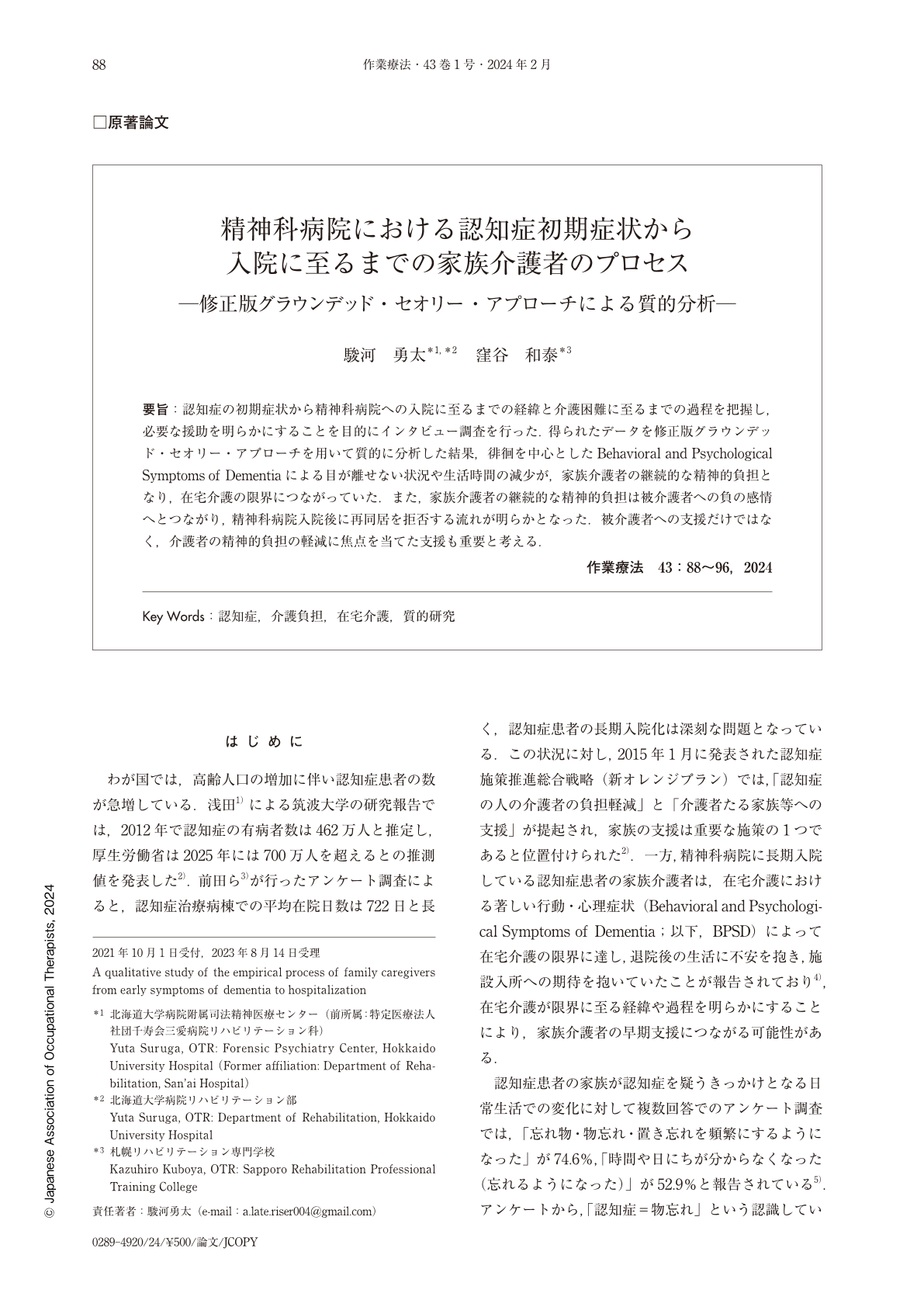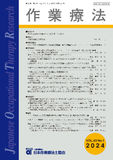Japanese
English
- 販売していません
- Abstract 文献概要
- 1ページ目 Look Inside
- 参考文献 Reference
要旨:認知症の初期症状から精神科病院への入院に至るまでの経緯と介護困難に至るまでの過程を把握し,必要な援助を明らかにすることを目的にインタビュー調査を行った.得られたデータを修正版グラウンデッド・セオリー・アプローチを用いて質的に分析した結果,徘徊を中心としたBehavioral and Psychological Symptoms of Dementiaによる目が離せない状況や生活時間の減少が,家族介護者の継続的な精神的負担となり,在宅介護の限界につながっていた.また,家族介護者の継続的な精神的負担は被介護者への負の感情へとつながり,精神科病院入院後に再同居を拒否する流れが明らかとなった.被介護者への支援だけではなく,介護者の精神的負担の軽減に焦点を当てた支援も重要と考える.
An interview survey was conducted to understand the process of both the initial symptoms of dementia to hospitalization in a psychiatric hospital and that leading to difficulty in nursing care, and to clarify the necessary support. The data obtained were qualitatively analyzed using a Modified Grounded Theory Approach. As a result, the mental burden of constant monitoring for dementia-induced wandering leads to a significant reduction of private time, resulting in a lack of home care tolerance. The continuous mental burden was a factor in the negative feelings of the caregivers, and after being admitted to a psychiatric hospital, the refusal to live together was confirmed. We believe that it is necessary to support caregivers through reducing their mental burden.

Copyright © 2024, Japanese Association of Occupational Therapists. All rights reserved.


